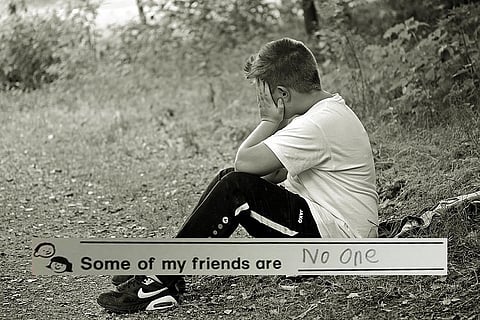

Bob Cornelius, a resident of New Jersey, went to his son Christopher’s school and clicked pictures of some of the projects he and his classmates had made and put for display. One such project asked children to name their favourite things like TV shows and food and also their family and friends.
11-year-old Christopher is on the autistic spectrum and as Bob went through the pictures of his responses to the above project, he noticed what his son had filled in “no one’ n the space where he was asked to name his friends.
Shocked and upset, Bob wrote a touching letter on social media about how, we as people never really talk to our children about how they must be around special needs children.
“They (children) were clearly not taught to embrace and accept the differences of others. Not by their teachers, which would have been nice, had they thought to do so, but by their parents. I don't mean to imply that parents that don't have this conversation with their kids are bad people, but only that somewhere in between working, soccer practice, and homework, it never occurred to them to have this particular conversation,” he wrote in a Facebook post on September 19, which has been shared over 46,700 times.
Bob also makes a reference to a picture which went viral earlier this month. The photo featured a football player from Florida eating lunch with Bo Paske, a boy who has autism and who would usually eat alone every day. Bob points out that while Paske may have plenty of people to speak to now after the picture went viral, it was the very same people who would ignore him earlier.
“Please tell them that children with special needs understand far more than we give them credit for. They notice when others exclude them. They notice when they are teased behind their back (a lot of times "behind their back" is right in front of them because they think the 'different' child doesn't understand). But mostly they are very much in tune when they are treated differently from everyone else.
Read Bob’s full letter here:
<